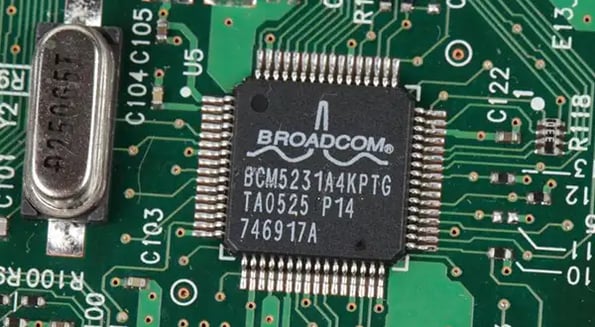For the last few months, Singapore-based semiconductor company Broadcom and US chipmaker Qualcomm have been entrenched in a hostile takeover.

Last November, Broadcom made a steep, unsolicited $103B offer to acquire Qualcomm. Qualcomm said “try again,” and the past few months have seen a dizzying back and forth, made all the more complicated by similar-sounding names.
Then, on Monday, just when it looked like a deal (which would’ve been the largest in tech history) was finally going to happen, the White House blocked Broadcom’s proposed $117B purchase, citing “credible evidence” that it would “impair the national security of the United States.”
5G: it’s gettin’ real…
And Qualcomm and Broadcom are both working center stage in the race to develop the ultra-fast broadband tech.
But, had the deal gone through, Broadcom would’ve secured $100B in debt, and the US was worried the debt to finance a takeover would force them to squeeze profit out of Qualcomm elsewhere, taking their eye off the 5G prize and making way for Chinese competitors like Huawei — one of the world’s largest telecom companies — to gain ground.
Welp, ya don’t see that everyday
The deal hadn’t even officially been agreed on, meaning the government stepped in to prevent a deal that essentially didn’t exist.
It’s an unprecedented power move by the US gov — and it shows the Trump administration isn’t taking any chances on deals that could dilute American tech companies, or give China a leg up in the global tech race.

